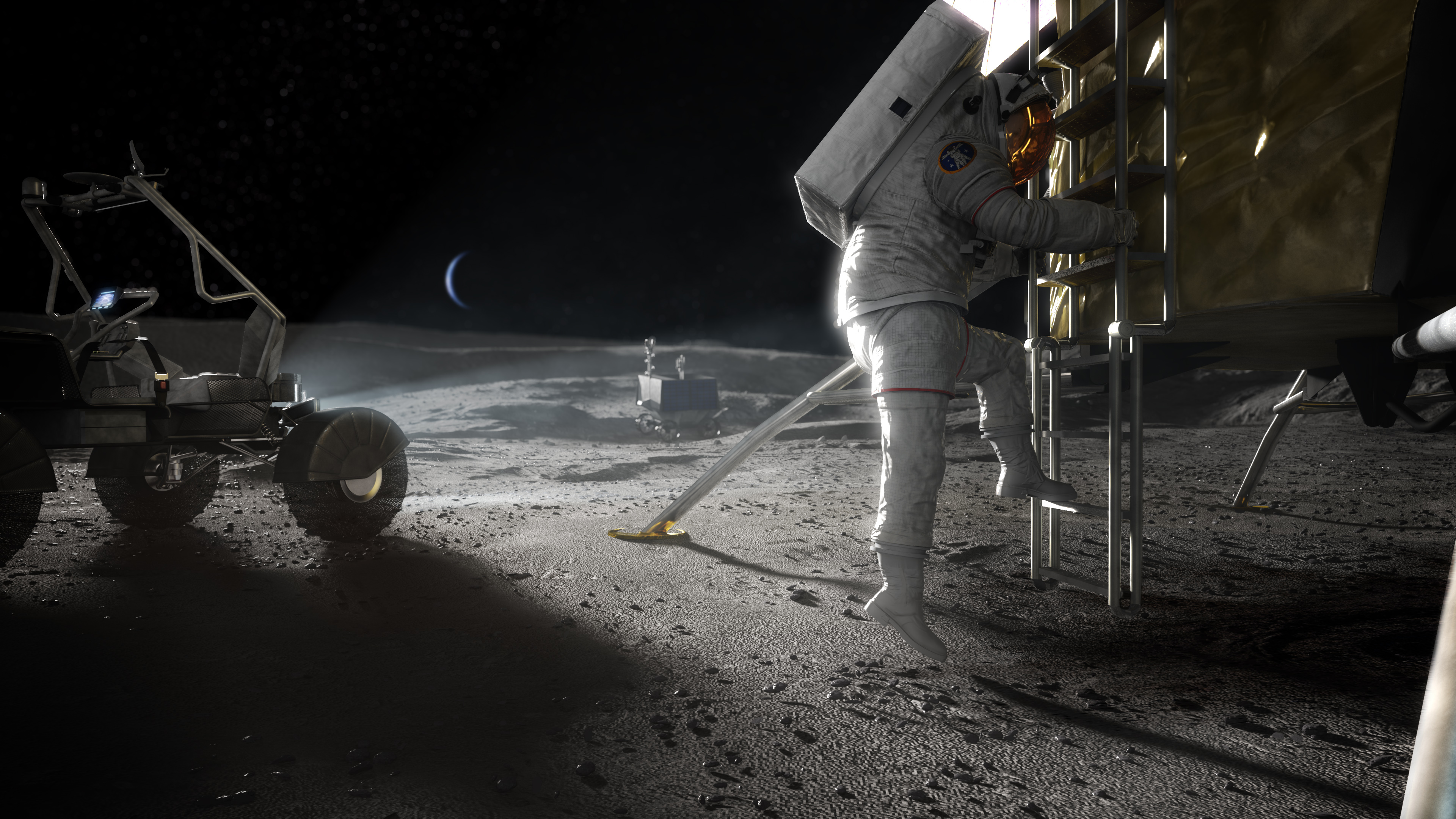Image of the Day Archives
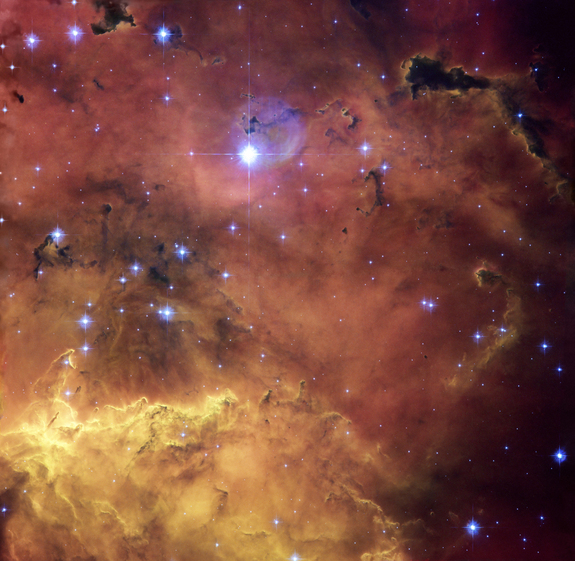
For older Image of the Day pictures, please visit the Image of the Day archives. Pictured: NGC 2467.
Halo
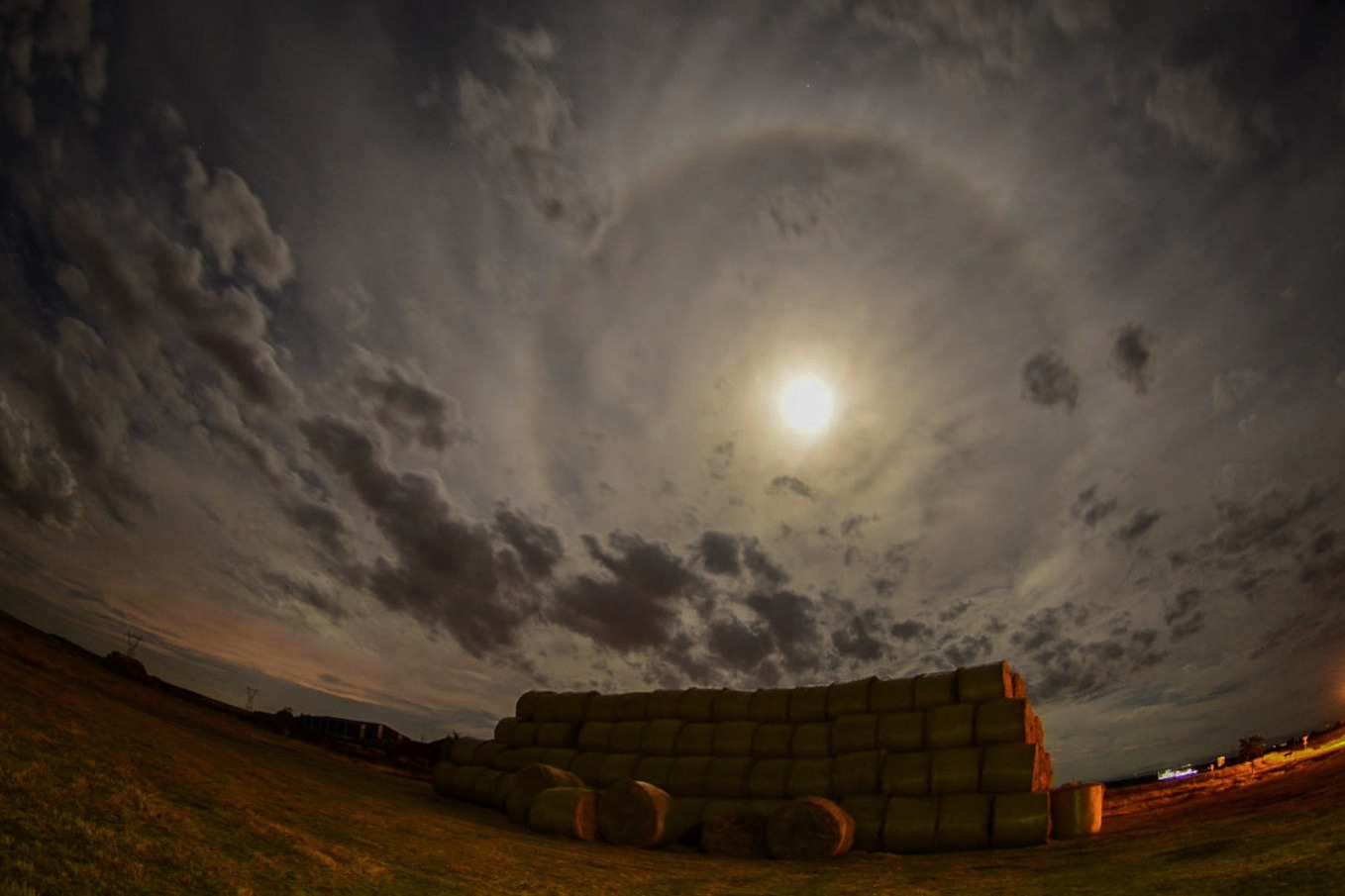
Monday, August 3, 2015: Astrophotographer Roberto Porto sent in a photo of the Blue Moon showing a 22-degree halo, taken in Castilla (Castile), Spain, on July 31, 2015. The term "Blue Moon" refers to a 2nd full moon in a month. The 22-degree halo around the moon results from ice crystals in the atmosphere, the hexagonal structure of which refract the moonlight to the observer.
— Tom Chao
'Lighting Libertas'
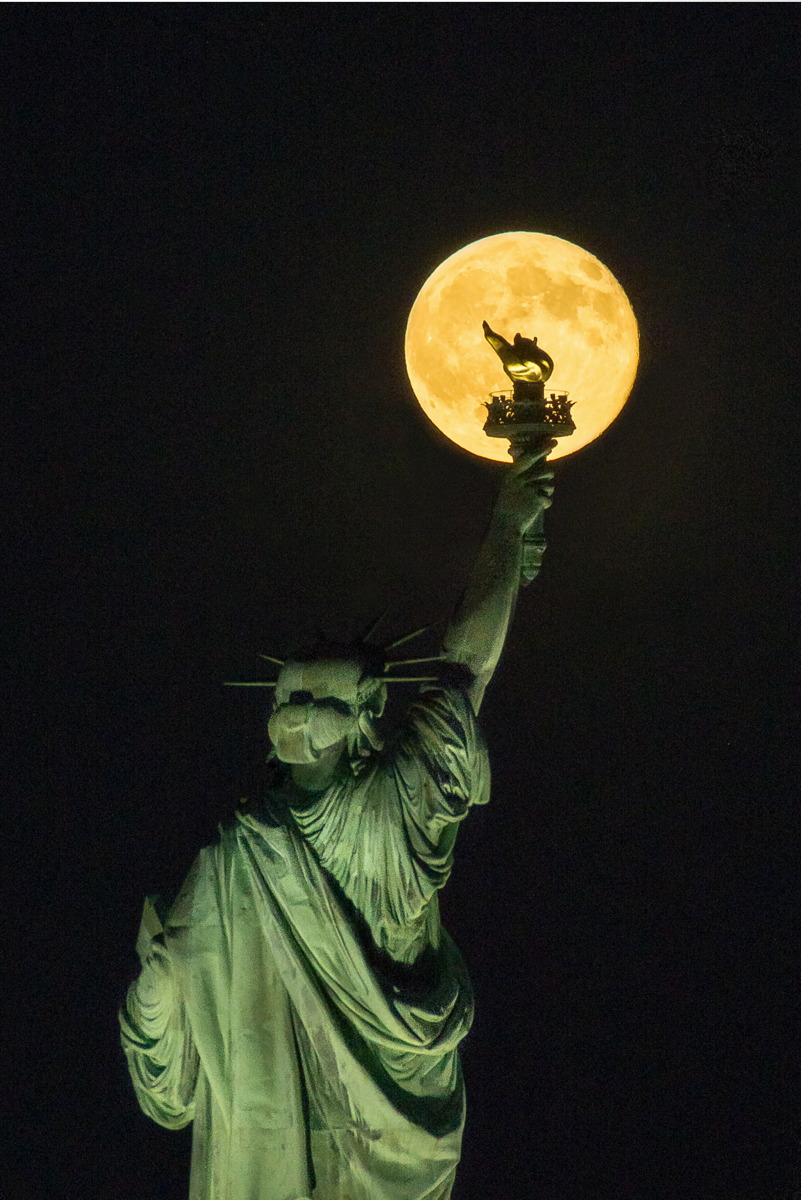
Tuesday, August 4, 2015: Astrophotographer Jim Abels caught the Blue Moon of July 31, 2015, and the Statue of Liberty from Liberty State Park in New Jersey. He writes in an email message to Space.com: "I planned the location out by using Photographer's Ephemeris app on my phone to determine the location of the moon rising. I waited until the moon lined up with the torch to capture this shot."
— Tom Chao
The Flash
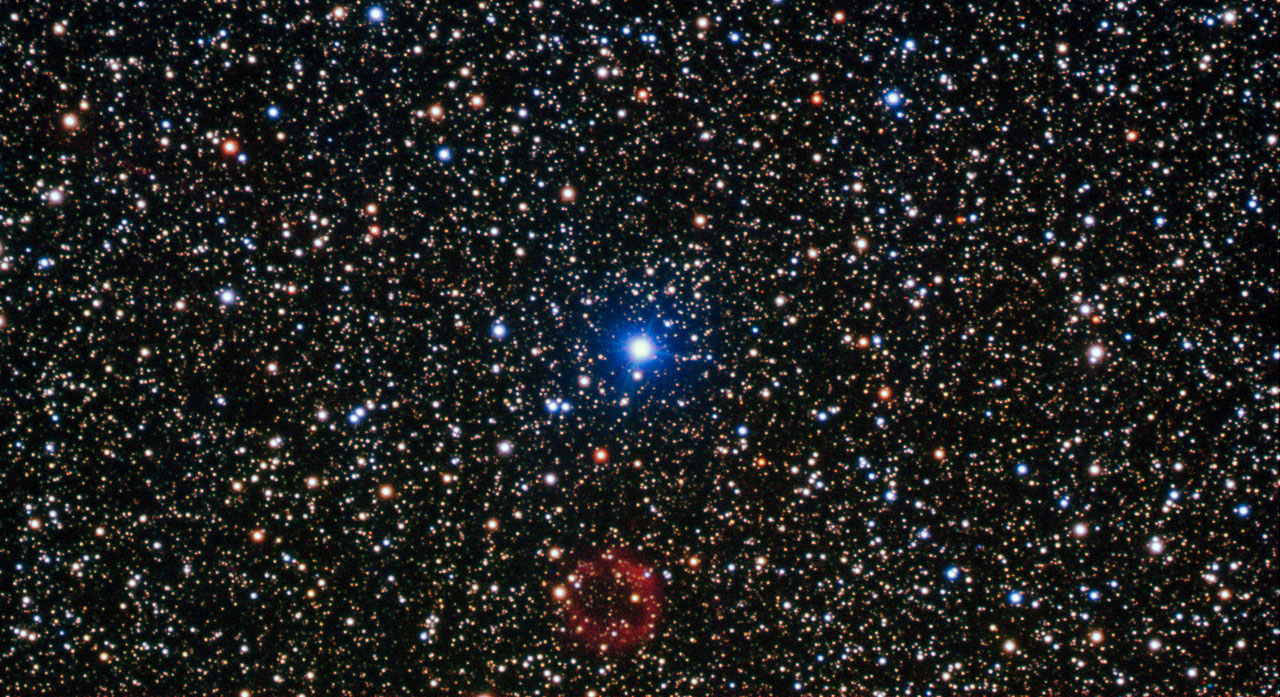
Wednesday, August 5, 2015: Sakurai's Object, the red smudge at bottom of this image, is a rare small white dwarf star undergoing a helium flash. A low-mass star usually ends its life as a white dwarf. Infrequently, the star reignites in a helium flash, expanding again to a red giant state, ejecting gas and dust, then again shrinking back to being a white dwarf. Image released Aug. 3, 2015.
— Tom Chao
Little Gem
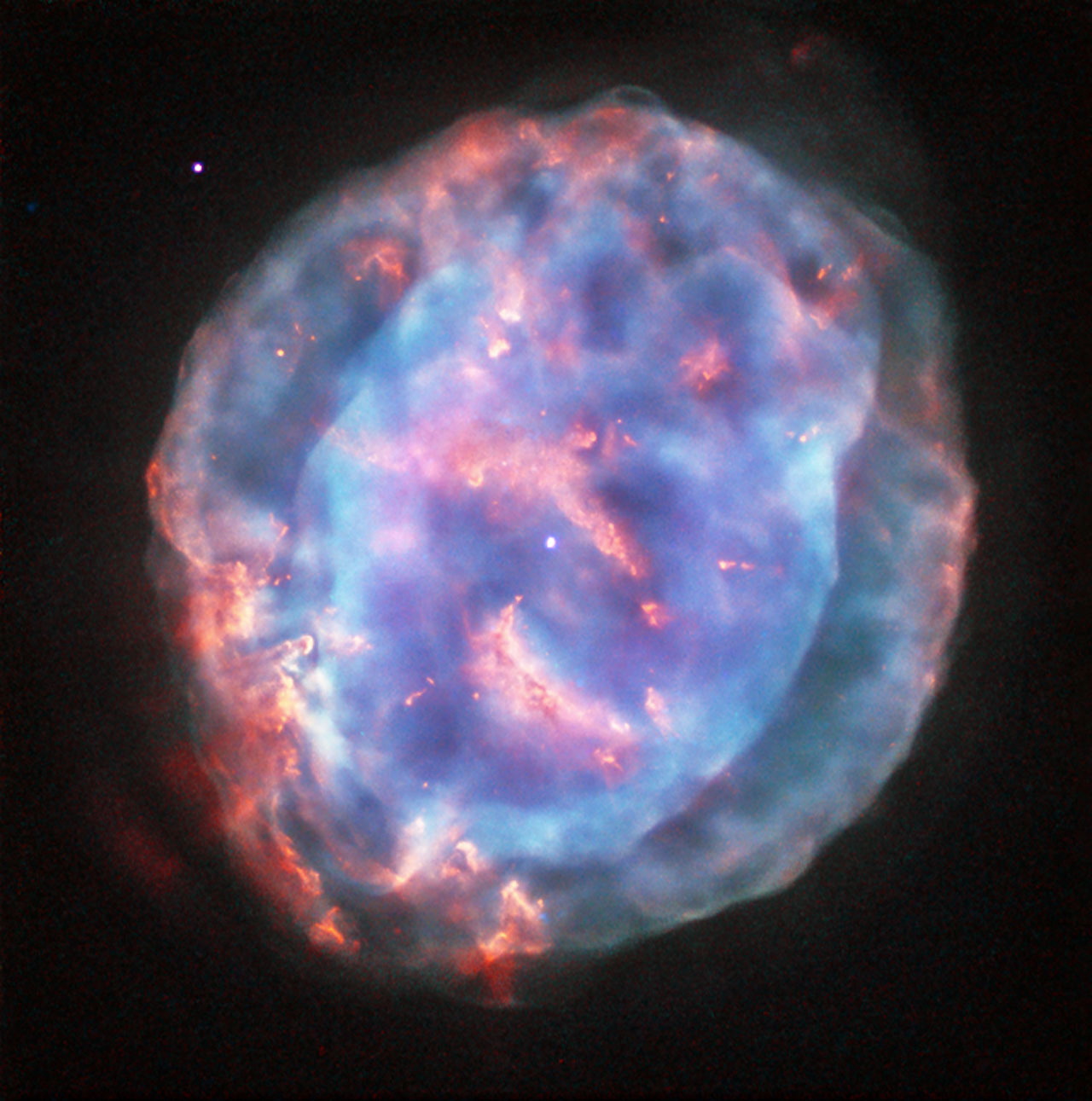
Thursday, August 6, 2015: NGC 6818, also known as the Little Gem Nebula, lies in the constellation of Sagittarius (The Archer), at a distance of roughly 6000 light-years away from us. The stellar wind from the central star, now entering the final stages of its life, propels its outer layers into space, creating a glowing bubble of gas called a planetary nebula. Image released August 3, 2015.
— Tom Chao
'Nauset Galactic'
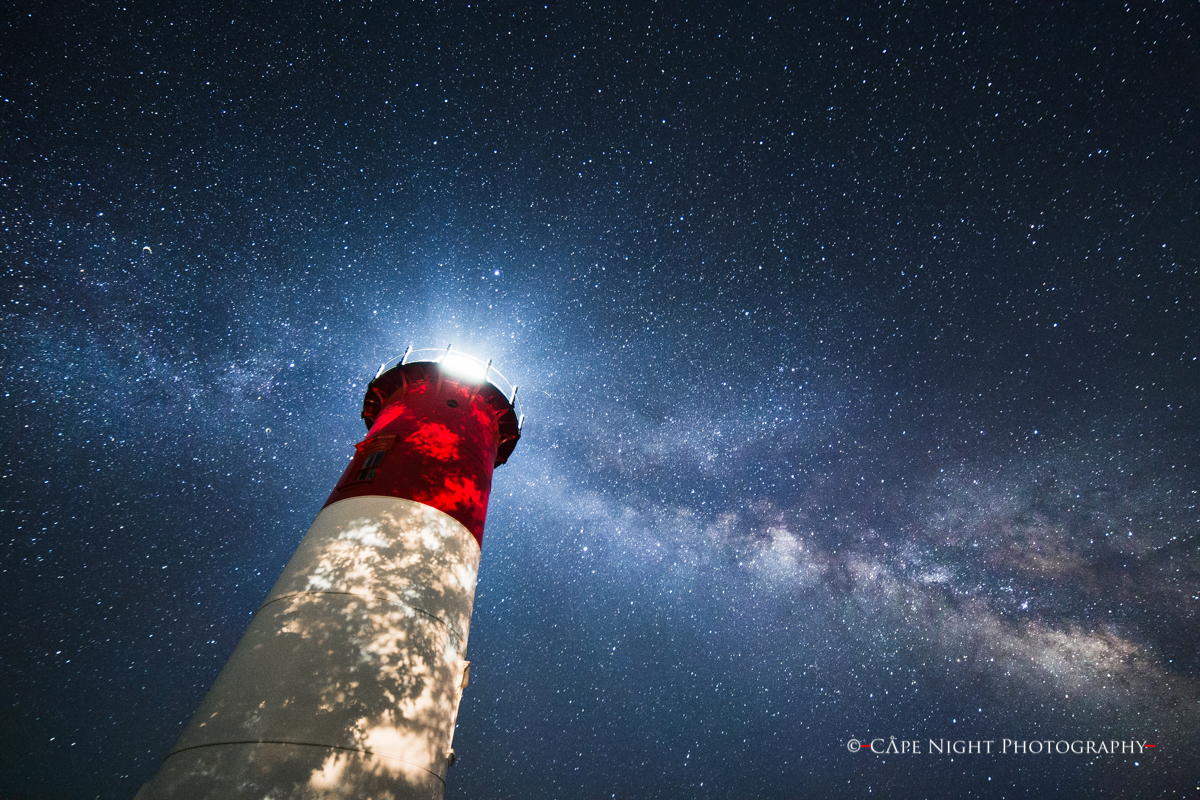
Friday, August 7, 2015: Astrophotographer Tim Little sent in a photo of the Milky Way over Nauset Lighthouse in Eastham, Massachusetts. He writes in an email message to Space.com: "The Milky Way had not quite aligned as shown here when I arrived so I spent the better part of an hour shooting the area until the time finally came to capture this image. The projected pattern on the side of the lighthouse was the result of a nearby flood light shining through the trees and a pleasant surprise as it was not visible to the naked eye." Image submitted August 4, 2015.
— Tom Chao
Night & Day
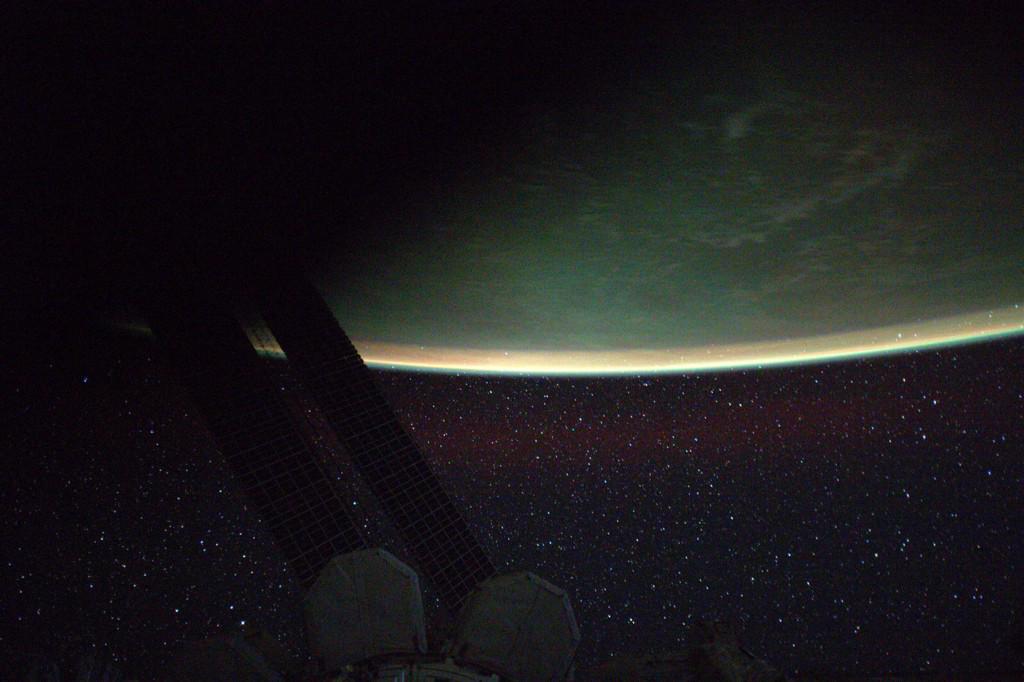
Monday, August 10, 2015: NASA astronaut Scott Kelly tweeted this photo from the International Space Station on Aug. 5, 2015. He wrote: “Day 131. Nighttime comes and glows. Good night from @space_station! #YearInSpace.” Scott Kelly launched to the space station on March 27, 2015, for his one year mission.
— Tom Chao
Get the Space.com Newsletter
Breaking space news, the latest updates on rocket launches, skywatching events and more!
Lost My Shape
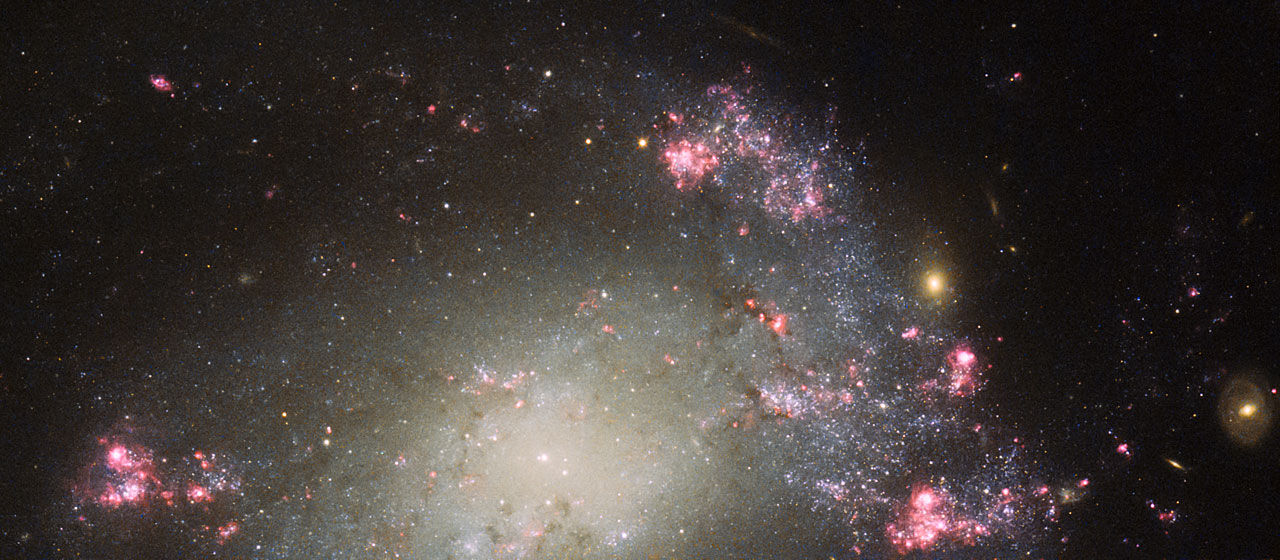
Tuesday, August 11, 2015: Barred spiral galaxy NGC 428 lies approximately 48 million light-years away from Earth in the constellation of Cetus (The Sea Monster). A residual spiral shape remains, but the galaxy's structure appears distorted and warped, possibly resulting from a collision between two galaxies. William Herschel discovered NGC 428 in December 1786. Image released Aug. 10, 2015.
— Tom Chao
Waving at You

Wednesday, August 12, 2015: On Aug, 10, 2015, Roscosmos cosmonauts Gennady Padalka and Mikhail Kornienko wave at the camera during a spacewalk outside the International Space Station. The spacewalkers completed a variety of tasks outside the Russian segment of the complex and carried out a detailed photographic inspection of the outpost’s exterior. [See full story.]
— Tom Chao
In the Air Tonight
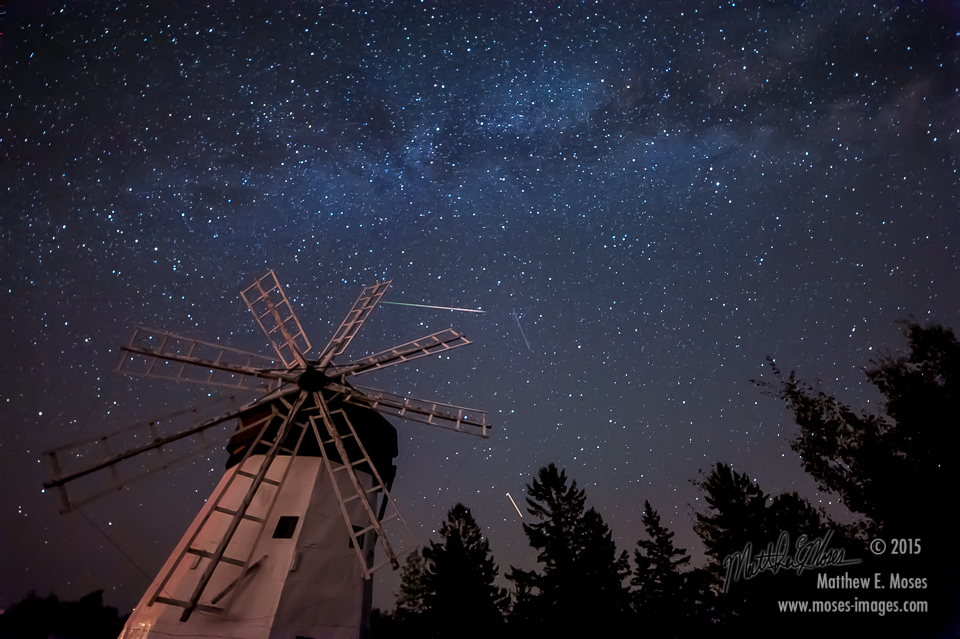
Thursday, August 13, 2015: Astrophotographer Matthew Moses sent in a photo of a Perseid meteor, a satellite, and an airplane streaking through the night sky over the Davidson windmill east of Superior, Wisconsin, taken on Aug. 12, 2015. The windmill dates from 1900 and appears in the National Register of Historic Places.
— Tom Chao
Get Out of My Yardangs
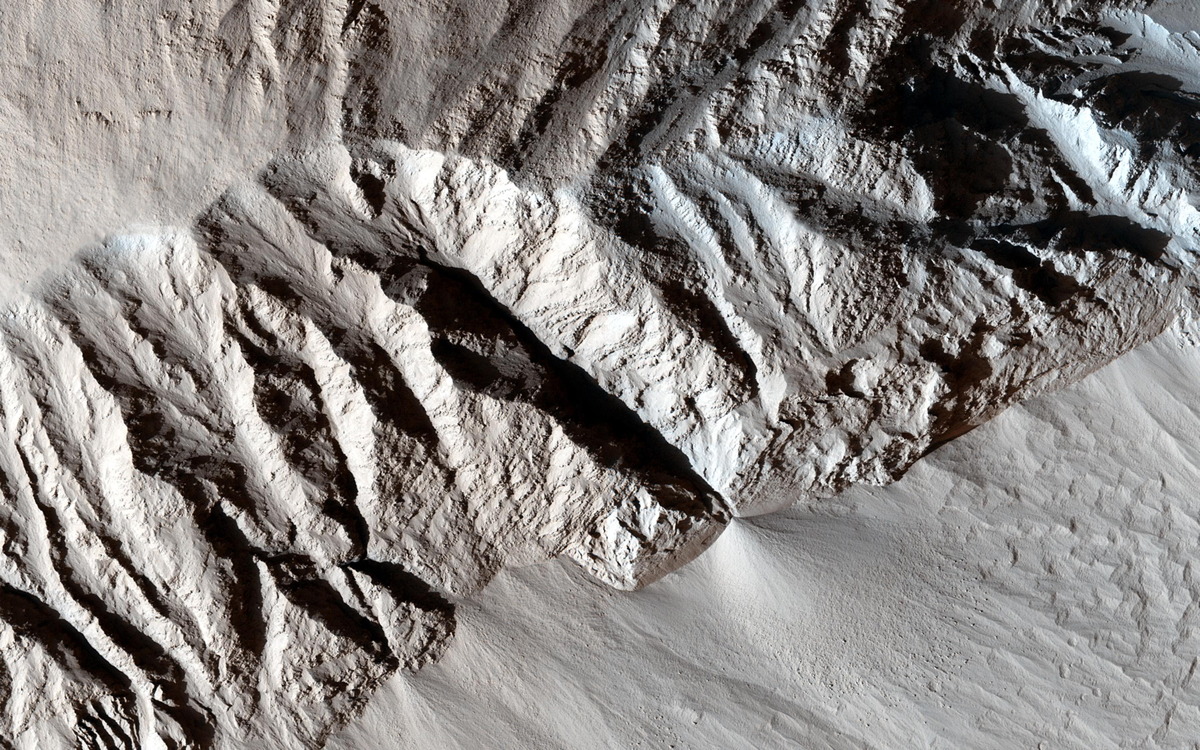
Friday, August 14, 2015: The Mars Reconnaissance Orbiter shows an area of Mars with a strong distinction between a relatively smooth region and neighboring sharp ridges, called yardangs. Researchers think the yardangs formed by the action of wind erosion, as softer materials blew out of the region. Image released Aug. 12, 2015.
— Tom Chao
Join our Space Forums to keep talking space on the latest missions, night sky and more! And if you have a news tip, correction or comment, let us know at: community@space.com.

